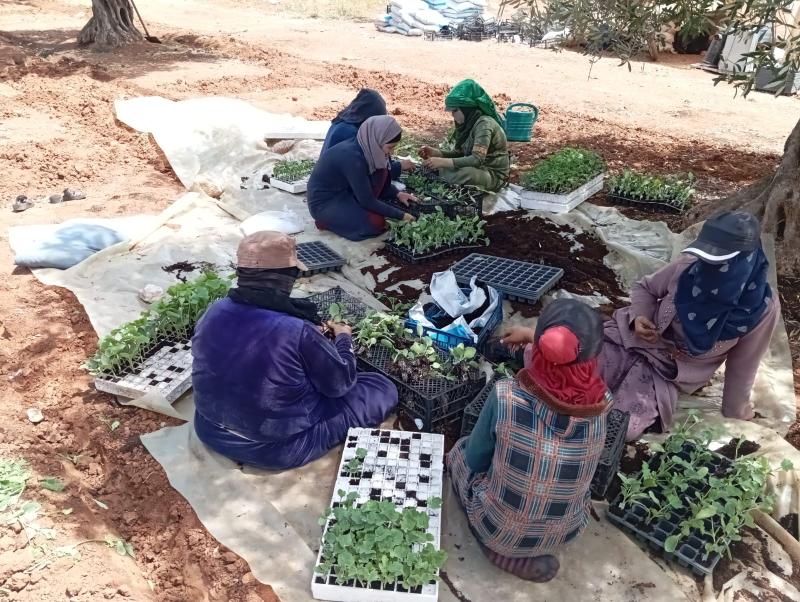SPARC partner publication
From crisis to climate-resilient recovery: Rebuilding Syria’s agri-food systems
This brief provides policymakers and donors with an integrated picture of how climate and conflict interact across value chains and shape daily realities in Syria.
Éditeur Violet
Syria’s agri-food sector, once a cornerstone of national identity and economic stability, has been devastated by more than a decade of armed conflict. This comes against the backdrop of the accelerating pressures of climate change. Before 2011, agriculture accounted for nearly a quarter of Syria’s GDP and sustained livelihoods for one in five Syrians (FAO, 2017). Today, wheat production has collapsed, livestock herds have been decimated, and olive groves — long symbols of cultural heritage — are in decline.
This collapse is undermining not only food security but also livelihoods, social cohesion, and the natural resource base that recovery depends upon. Conflict has destroyed irrigation networks, warehouses, and veterinary services, while also fragmenting markets through border closures, checkpoints, and informal taxation. At the same time, climate change has intensified drought cycles, heatwaves, and erratic rainfall, leaving rainfed crops to fail, pastures to shrink, and pests to spread unchecked.
Neither climate nor conflict alone explain the depth of the collapse. It is their interaction as threat multipliers that has pushed Syria’s agri-food systems almost past the limits of resilience. Despite the scale of this dual crisis, most evidence to date has analysed conflict and climate separately. Humanitarian assessments highlight displacement and violence, while climate reports track rainfall deficits and rising temperatures.
An integrated picture of how these two forces interact across value chains and shape daily realities has been missing. This has limited the ability of policymakers and donors to design strategies that are both conflict-sensitive and climate-resilient. This policy brief, part of a series of SPARC's locally led research led by programme partner Violet, is the first to fill that gap. It aims to inform policies and funding decisions that are both conflict-sensitive and climate-resilient.
Read the policy brief in English here and in Arabic here.
Don't miss the report (available in English and Arabic) that accompanies this brief: 'The compounded impact of climate change and armed conflict on the agri-food sector in northwest Syria' here.

Rural women prepare seedlings under olive trees
Credit Violet Field Team, Idleb, August 2025